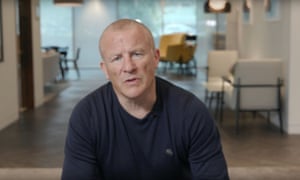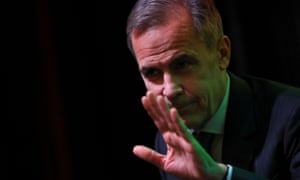He was, the BBC declared in 2015, “the man who can’t stop making money”. He was the rock star of pensions and fund management, awarded a CBE for his services to the economy. But now, since Neil Woodford stopped investors from withdrawing their own money from his flagship fund, he is in the spotlight for all the wrong reasons.
His Woodford Equity Income Fund holds the pension savings and investments of tens of thousands of people. But it has been performing so badly that investors were withdrawing money at the rate of £10m a day.
-----Also read
It can be Hard to tell Luck from Judgment
-----
Last week, after 23 consecutive months in which withdrawals from the fund had been greater than the new money coming in, Woodford found he couldn’t realise cash quickly enough to meet the withdrawal requests – at least at a decent price. He closed the fund to withdrawals, leaving legions of investors angry and in limbo for 28 days.
In a YouTube video he posted on Wednesday to finally apologise to investors, he looked anything but the archetypal City fund manager, with his close-cropped hair and trademark casual jumper rather than suit and tie. In the video, filmed at his fund’s headquarters on an industrial estate near Oxford, Woodford said: “I’m extremely sorry that we’ve had to take this decision. We understand our investors’ frustration. All I can say in response to that is that this decision was motivated by your interests.”
Woodford said he had been forced to “gate” the fund because so many big investors were trying to pull money out that he wasn’t able to meet the demand. His funds hold unusually big stakes in smaller and early stage unlisted companies, which are hard to sell quickly.
The final straw had been Kent county council pension fund’s request to take out its £263m holding. The trustees of Kent’s pension fund – who had been trying to stem the losses Woodford had racked up for its 110,000 members – decided to pull out when it emerged at the end of last month that the flagship fund had shrunk by £560m to £3.77bn in just four weeks. At its peak the fund was worth more than £10bn.
Of the £560m lost, just under £190m was made up of withdrawals. The rest – more than £370m – represented yet further declines in the value of the investments held in the fund, which at the end of April was made up of stakes in 101 companies ranging from housebuilders such as Barratt Developments and Taylor Wimpey to logistics business Eddie Stobart and a large number of esoteric healthcare firms.
Under EU rules aimed at ensuring that funds which hold unquoted – and therefore potentially hard-to-sell – shares can retain their stability, these shares are permitted to make up no more than 10% of the portfolio. Woodford got around those rules, quite legally, by putting some of them into his separate, quoted Patient Capital investment trust – and taking Patient Capital shares into the main fund. He also listed some of them of the Guernsey stock exchange.
But the Kent fund had left it just too late: instead of getting its cash back, its request triggered Woodford’s suspension of trading in the fund.
The video apology, in which Woodford set and answered his own questions, followed months during which he had been dismissing the concerns of investors and financial experts about his fund’s prolonged poor performance.
In February, his Woodford Equity Income Fund was listed for the first time on a “Spot the Dog” list compiled by Bestinvest, which highlights underperforming “dog” funds. Bestinvest criticised some of his worst investments and described the fund as “a Great Dane-sized” new entrant to its list.
Just a few weeks later, Woodford told the Financial Times that the investors who were pulling out were making “appallingly bad decisions”, influenced by “a mountain of fake information and fake analysis” that “pisses me off”.

Neil Woodford apologises to investors in a still from his YouTube video last week. Photograph: Woodford Investment Management/PA
In December 2017 he said in an interview that they key to successful investing was to “have a sufficiently strong arrogant gene to back your judgment, back your conviction”.
That arrogance is now provoking widespread anger, not just from his investors but also among other fund managers, who say Woodford has tarred the whole industry with the same loss-making brush.
Last Wednesday the Financial Conduct Authority, the City’s watchdog, said it was considering a formal investigation into the fund, and the following day, Bank of England governor Mark Carney told an audience in Tokyo that funds such as Woodford’s (although he died not name him) needed closer scrutiny to lessen the risk of fire sales triggering market disruption. The Bank, he said, would start stress-testing funds to ensure they couldn’t threaten a system-wide crisis.
This is a staggering fall from grace for Woodford, who had been one of the UK’s very best and most reliable stock pickers. Anyone who invested £10,000 at the start of his quarter-of-a-century career at Invesco Perpetual would have seen their money grow to almost £250,000 by the time he left.
Mark Dampier, director of research at stockbroker Hargreaves Lansdown, declared in 2015 that Woodford was “arguably the best fund manager of his generation”. Just weeks ago, despite the growing cloud surrounding Woodford, Hargreaves told its clients “we retain our conviction in him to deliver excellent long-term performance” and reminded them that he had “built his career by investing against the herd” and “shown an ability to get the big calls right”.
Hargreaves’s customers had £2bn invested with Woodford at the end of March – roughly a fifth of all the money in his three big funds.
Only when the fund was gated did Hargreaves, which has heavily promoted Woodford at discounted fees, finally drop Woodford Equity Income from its influential “Wealth 50” list of favourite funds, which it marketed to its more than a million clients.

FacebookTwitterPinterest Bank of England governor Mark Carney has suggested that funds such as Woodford’s need more scrutiny. Photograph: Hannah McKay/Reuters
Asked if he regretted his support for Woodford and the controversial discount fee structure, Dampier said: “Our aim is to enable our clients to choose the best-in-class funds at lower fees. Our favourite fund choices have, for the most part, beaten their sector averages and benchmarks. Not every fund has, and we share our clients’ disappointment and frustration when they don’t.”
Other big backers have also deserted Woodford. St James’s Place last week took its clients’ £3.5bn to another manager. On Thursday another supporter, Openworks, did the same with its £330m.
Woodford fell into fund management by accident. He had never even heard of the business until he rocked up in London in the 1980s, sleeping on his brother’s floor while looking for a job. He had left school wanting to fly fighter jets but couldn’t pass the RAF’s aptitude test, and instead read agricultural economics at the University of Exeter.
In 1988 he joined Invesco Perpetual and built a reputation as a brilliant contrarian investor. When others piled into dotcom shares at the turn of the century, he decided against, and backed more traditional companies. He made huge gains when the dotcom crash came. He eschewed banking stocks before the financial crisis – and avoided that crash too.
He held big stakes in giant companies, whose chief executives needed to retain his support. In 2012 his criticism of AstraZeneca chief executive David Brennan was widely regarded to have cost Brennan his job, and his criticism of BAE’s attempted £28bn merger with Airbus was seen as one of the reasons the deal collapsed.
In 2014, feeling that he had outgrown Invesco Perpetual, where he personally managed some £25bn of funds, he set up his own firm, Woodford Investment Management. Within two weeks of launching, he had raised £1.6bn, a UK record, and this quickly grew to £16bn. In its first year, his flagship fund made a 16% return and Woodford, a devotee of veteran US investor Warren Buffett, was called the “Oracle of Oxford”.

FacebookTwitterPinterest Woodford is a keen student of the US investor Warren Buffett. Photograph: Andrew Harnik/AP
But since then things have turned sour. Over the past four years, investors in Woodford Equity Income have collected a return of less than 1% – compared with 29% for the market as a whole. Over that same four-year period, Woodford has paid himself some £63m.
In the 2017-18 financial year alone, which was a dreadful period for his funds, Woodford Investment Management paid a £36.5m dividend to a company called Woodford Capital. Woodford holds 65% of that firm, and his business partner Craig Newman has the remaining 35%.
Woodford, who has spoken out against the huge bonuses awarded to other fund managers, and to the bosses of companies he has invested in, declined to answer any questions about his own pay, or to elaborate, beyond his YouTube video, on the fund’s tricky situation.
The firm’s public relations officer asked the Observer to point out that Woodford had donated some of his pay to charity. But he was unable to state how much money had been donated, or to which causes. The PR person declined to comment when asked whether Woodford would consider pumping any of his personal millions back into the fund.
Those who know Woodford say he is “decidedly unflashy” and that it is “difficult to fathom where all that money goes”. Well, a lot of it appears to go on horses. He and his wife Madelaine have a few dozen top showjumpers training at a vast equestrian complex near their home in the Cotswolds.
The house, near Tetbury, was built on land the Woodfords bought for nearly £14m in 2013. They moved to the Cotswolds after a planning application to construct a dressage arena and 28-horse stabling block near their previous estate, in Buckinghamshire, was rejected following a row with neighbours. One of those neighbours, the BBC’s Jeremy Paxman, described Woodford’s planned addition as “enormous, unsightly and environmentally unfriendly”.
The Tetbury venue, however, got the planners’ green light and includes a full-size manège (dressage arena). Woodford, who came to the sport only after meeting Madelaine – a keen rider whom he married in 2015 – has put in the hours at the manège and now often takes part in eventing competitions on a bay gelding called Willows Spunky.
Woodford’s other passions are fast cars and racing bicycles. He starts up the Porsche at 5am every weekday to drive to his fund’s minimalist offices on an industrial estate in Cowley, Oxford. At weekends he drives it down to the couple’s £6.3m glass-walled holiday home in Salcombe, Devon.
Woodford’s huge pay and luxury lifestyle haven’t gone unnoticed by his investors, many of whom are relying on him to be a safe pair of hands and to increase the value of their retirement or rainy day fund.
A comment on his YouTube video, by someone with the username Platoreads: “Arrogance, Incompetence, Complacency and greed: your name is Woodford! You have failed, Neil. Return the funds to your investors (including that £37m bonus you pocketed this year despite a disastrous performance in all three funds).”
Luke Hilyard of the High Pay Centre said: “This particular instance of an investor making tens of millions while losing money for ordinary savers raises questions about the governance of the funds and platforms channelling other people’s money into Woodford’s fund, and the regulatory oversight of the process.
“The case is also a microcosm of our wider business culture and economic system, where superstar managers in investment, banking, retail, commodities and other industries have been treated like gods and rewarded accordingly, yet ultimately have shown themselves to be highly fallible mortals whose success was always partly contingent on timing and luck.”
Woodford, who made his name at Invesco by backing big companies, but then switched to a new strategy of investing in smaller and unquoted companies in his own funds, has now pledged to change direction.
In his video he said he would now be targeting bigger companies, especially FTSE 100 stocks – even though only a few weeks ago he was insisting that his approach was the correct one and that the best investment opportunities were “absolutely not” in large companies.
Big bad bets
Woodford bought big stakes in many companies that performed very poorly. They include:
• Kier (construction) -74% in 12 months; Woodford funds own 20%
• Circassia (biotech) -74%; Woodford owns 28.5%
• Prothena (biotech) -36%; Woodford owns 29.9%
• Stobart Group -46%; Woodford owns 18.8%
• Redde (support services) -39%; Woodford owns 28%
• Allied Minds (technology) -31%; Woodford owns 27%
• Spire Healthcare -51%; Woodford owns 5%
• Utilitywise, energy broker that collapsed in Feb 2019; Woodford owned 29%
What Woodford investors say:
“I invested £60,000 three years ago and have lost over 20%. Luckily I sold nearly half my investment the week before the fund closed. I’m going to hold my remaining units until after Brexit as a high-risk bet.”
Simon, 51, Brighton
“I‘m getting married on 10 August and we’ve been saving for over two years. My final bill to the venue and suppliers is due at the start of July. If I can’t withdraw my money I’m going to be looking to beg, borrow or steal until I can get it released.”
James M, 28, Newcastle
“I inherited some money, and chose on a stocks and shares Isa, following suggestions from Hargreaves Lansdown, then watched the value dwindle. On 31 May I decided to take the hit and sell. The deal was shown as “pending” until Wednesday morning, but that disappeared and I was told I wouldn’t be able to sell my units. I don’t think I’ll be getting much back when trading opens again.”
Sally Williams, 53, London
No comments:
Post a Comment